| Umělec 1999/2 >> Ward Shelley at Flipside Gallery, Brooklyn | Просмотр всех номеров | ||||||||||||
|
|||||||||||||
Ward Shelley at Flipside Gallery, BrooklynUmělec 1999/201.02.1999 Tim Gilman-Ševčík | brooklyn | en cs |
|||||||||||||
|
"“I can’t go on. I’ll go on.“ Samuel Beckett’s line says it best. This desperate utterance, a declaration of unwilling survival, captures the nature of the work of Ward Shelley in his show at this small Brooklyn gallery. The space is filled with crashing of his metal sculptures, which are made of old appliances and street junk, as they fail and fail again. One piece, Floor Standing Ashtray, is like the metaphoric representation of a Beckett character, playing one scene, one line, endlessly with sickening persistence.
Lying humiliated on the gallery floor, he tries to raise himself up, but just as he approaches dignity, he slips and falls on his face. He is just a torso, hat and two arms, a mechanical amputee. His body is a gray metal ashtray, the kind that stands in the corner of elevator lobbies and disappears when you look at it. His one moving part is a thin metal arm, an exposed bone, that is driven in a slow rotating circle by a motor which is like his undying but hopeless heart. The arm swings in a slow arc over his head and then pushes off against the floor, dragging his body forward and up. His weight braces against his stiff second arm, a horribly orange and yellow mop. A green rubber ball, his nose, and the ashtray lid at a jaunty angle, his hat, complete his personality. A drunken clown. He struggles, he fights to lift himself up. His one good arm pushes him up and up until, just a moment, just an inch from success, he falters. He slips, he crashes down and smashes his nose into the floor where his innumerable earlier falls have already cut tracks into the wooden floor. His fall triggers a second motor, connected to a seatless chair across the room from his inert body. The chair is pulled backward by the old frayed shoelaces which tie it to the motor hidden in the floor. The chair tips and tips then goes past its balance point. But it doesn’t fall because a second set of shoelaces tied to the front of it arrest its fall. The motor that tipped it back then reverses, and pulls its front legs back to the ground. The moment it touches back down the motor cuts, and the ashtray motor starts, the arm swings around, preparing to again push away from the floor. The ashtray is never allowed to stand. The chair, never allowed to fall. The two are linked in a cursed cycle in which they are each damned to suffer a hell that is the unattainable dream of the other. Similarly, and perhaps too similarly, the other two works in the show also demonstrate futility and failure in a similarly banal and domestic vocabulary. His Ambitious Toaster is an old toaster that sits on a low shelf on the wall. Sticking out of one toast hole is a silver ladle, an arm, with a rubber ball in its scoop. The motor-driven ladle reaches up to the shelf above the toaster, the next level it hopes to get onto. It pulls itself up, buts bumps into the upper shelf, which is the goal and at the same time the insurmountable barrier that keeps it in its place. It falls back with a crash, only to start again immediately, no respite; stupidly continuing to pursue its unreachable goal. The last piece here, Sensitive, is a bare light-bulb hanging at eye level from the ceiling on a black cord. The bulbs gradually lights up and, simultaneously begins to quiver and shake. The more it shines, the more it shakes, until, threatening to destroy itself, it goes out. Shelley has captured this level of frustration, the achieving of an unsustainable high point which rests right on the brink of success. It is that point that is the pinnacle of a stretch, so terrifying, so close, but in the end, unreachable. Gratification forever denied. He has captured stopping points, failures, spiritual deaths with breathtaking precision. They evoke the memory of Tinguely, whose massive elaborate machines busily accomplished nothing or their own destruction. But Shelley has distilled mechanical futility down to a single clear and painful human moment. Though this is the strength of his work, it is also, with reflection, its weakness. His works, which can be read as articulate statements, are true, but unambiguous. They drew me in immediately and fully, but they did not expand with time and reflection. I have carried them with me in my head for months, and they are still the same tome as they were then. Shelley has told us, and what he has said is accurate and beautifully, concisely, even poetically stated; but, in the end, he has argued his case too well, and perhaps with pride. Looking back on his works, what leaves me wanting is a difference, which I will argue exists, that lies between recalling and re-membering. I can recall the works. Recall them in the sense of calling them back up in my mind whole and defined. Re-membering would be putting their pieces back together, perhaps adding, changing or leaving off some part that I was unsure of before or am unsure of now. The mind is given room to play, to misunderstand and re-conceive the work. In this sense I can not re-member the works. They are already assembled and complete. Where is that uncertainty, that part which belongs to me as their viewer? "
01.02.1999
Рекомендуемые статьи
|
|||||||||||||
|
04.02.2020 10:17
Letošní 50. ročník Art Basel přilákal celkem 93 000 návštěvníků a sběratelů z 80 zemí světa. 290 prémiových galerií představilo umělecká díla od počátku 20. století až po současnost. Hlavní sektor přehlídky, tradičně v prvním patře výstavního prostoru, představil 232 předních galerií z celého světa nabízející umění nejvyšší kvality. Veletrh ukázal vzestupný trend prodeje prostřednictvím galerií jak soukromým sbírkám, tak i institucím. Kromě hlavního veletrhu stály za návštěvu i ty přidružené: Volta, Liste a Photo Basel, k tomu doprovodné programy a výstavy v místních institucích, které kvalitou daleko přesahují hranice města tj. Kunsthalle Basel, Kunstmuseum, Tinguely muzeum nebo Fondation Beyeler.
|







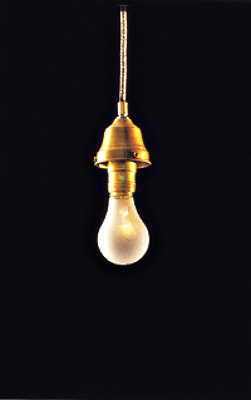
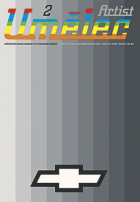

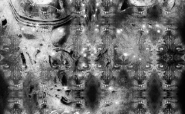
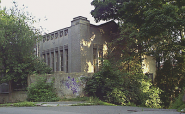
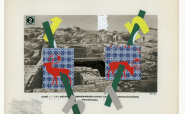
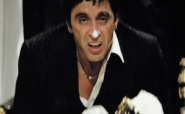
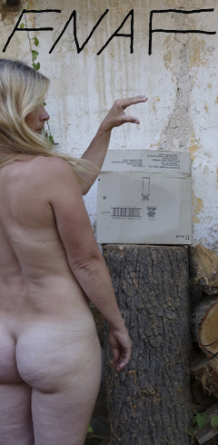






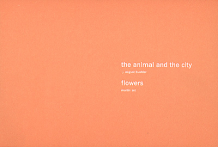




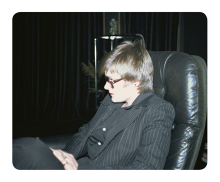
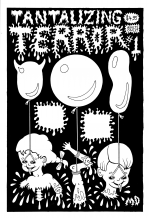

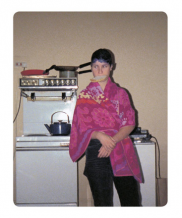


 New book by I.M.Jirous in English at our online bookshop.
New book by I.M.Jirous in English at our online bookshop.
Комментарии
Статья не была прокомментированаДобавить новый комментарий